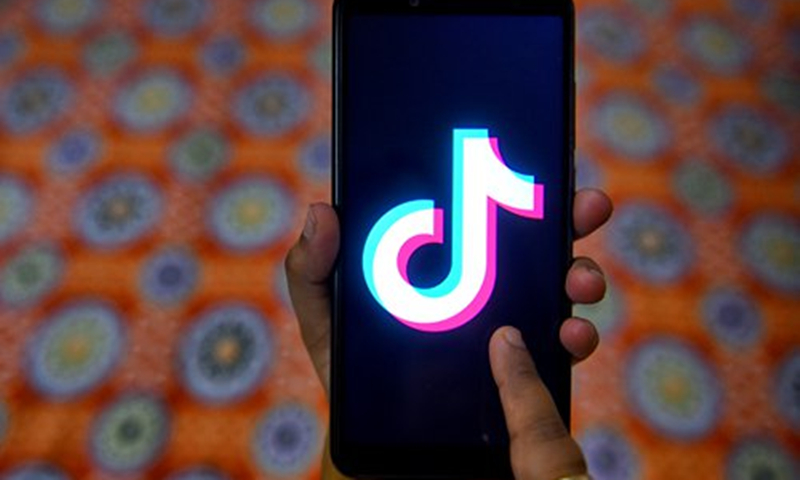US ‘vulnerable’ in squeezing Chinese social media apps: Foreign Ministry
Source: Global Times Published: 2020/7/13 18:53:40

The image of TikTok in India (Photo: IC)
A possible US crackdown on Chinese social media apps just showed the US' weakness, which is not in line with the values the country claims it holds, a Chinese official said on Monday.
In a regular briefing, Hua Chunying, spokesperson for China's Foreign Ministry, said "the US prides itself on strong values ... then why it is so afraid of a social media app that can easily share entertainment video clips, which has been proved to be very popular among US teenagers."
The US has constantly sought fault with short-video platform TikTok, which is owned by Beijing-based start-up ByteDance.
White House adviser Peter Navarro said he expects US President Donald Trump to take "strong action" against Chinese-run social media apps TikTok and WeChat for engaging in an alleged "information warfare" against the US, according to Bloomberg News. Even if TikTok is sold to an American buyer, it would not solve the problem, Navarro said.
It is not the first time US hawks have threatened Chinese software firms citing US national security.
The US is "looking at" banning TikTok and other Chinese social media apps, US Secretary of State Mike Pompeo said last week.
"Why would a strong US suddenly become so vulnerable? I think it is a question worth our consideration," Hua said.
PRISM, a tool used by the US National Security Agency to collect private electronic data belonging to users of major internet services, has revealed that the US is the veritable "matrix" in the world, and it has long conducted indiscriminate and illegal cyber attacks, monitoring and stealing secrets all over the world, she noted.
Meanwhile, the spokesperson hoped that US officials could conduct dialogue with young people in the US and stop doing things that make them laugh.
Data showed that TikTok is very popular among US teenager users. As of January 2020, teens accounted for 37.2 percent of TikTok's active user accounts in the US. According to App Ape, users aged 20 to 29 years were the second-largest user group, accounting for 26.3 percent.
Posted in: COMPANIES